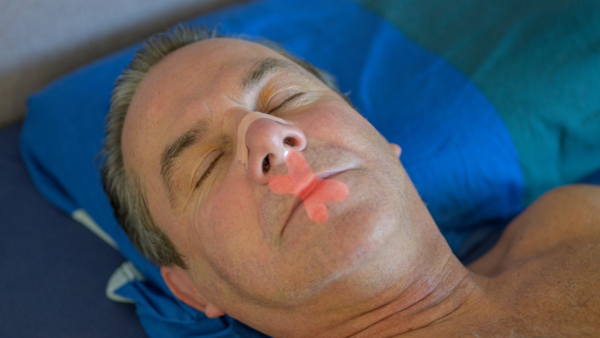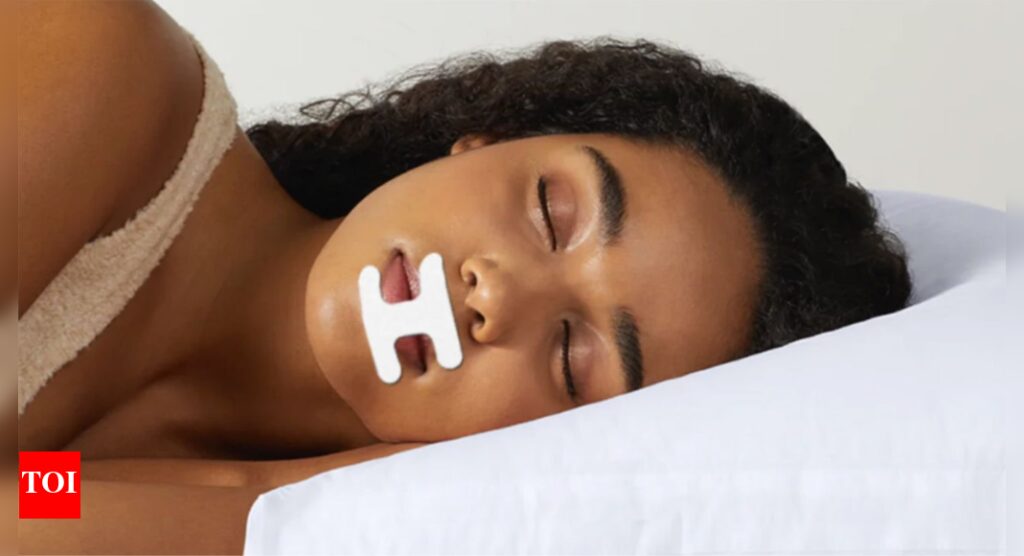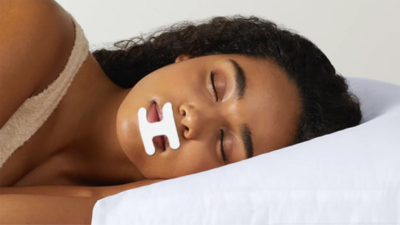Mouth taping, an emerging sleep treatment trend where people tape their mouths closed before bed to encourage nasal breathing, is gaining popularity despite limited scientific evidence supporting its benefits. While some practitioners claim it helps with issues like snoring and bad breath, only a few small studies have examined its effectiveness, with most benefits being anecdotal. Let’s find out if mouth taping actually works and why people are following this practice.
How to do mouth taping?
The practice involves using porous tape over both lips to prevent mouth breathing during sleep. People interested in trying mouth taping should use only porous tape designed for skin application. Several companies now manufacture specialized mouth tape strips, while pharmacies offer alternatives like hypoallergenic tape, surgical tape, and athletic tape.
Benefits of mouth taping
- The most substantial evidence for mouth taping comes from a study by MDPI Healthcare focusing on people with mild
obstructive sleep apnea . Researchers found that it prevented breathing lapses in many patients. - Wearing a porous mouth patch caused participants to breathe through their nose, altering palate and tongue positioning, which significantly reduced snoring.
- Proponents of mouth taping suggest it may help address various issues, including fatigue and concentration problems.
- Mouth taping may also be helpful for those dealing with bad breath, and nighttime thirst.
- There are claims by users that it could reduce negative effects associated with mouth breathing, such as dry mouth, cavities, gum disease, and decreased cognitive ability.
Side effects of mouth taping
Common side effects reported by users include lip area irritation, pain when removing tape, disrupted sleep from breathing difficulties or tape discomfort, and anxiety from having the mouth sealed. Some users with facial hair report additional discomfort during tape removal.
Safety considerations are essential when attempting mouth taping. Doctors recommend testing the strips during daytime hours first and avoiding the practice if experiencing nasal breathing difficulties due to allergies or nasal polyps.

Things to try if you’re not into mouth taping:
- Several alternatives exist for addressing the issues mouth taping claims to solve. Side sleeping has been proven through decades of research to reduce snoring in both people with and without sleep apnea.
- Nasal strips represent another option for encouraging nasal breathing, though studies show mixed results regarding their effectiveness for snoring reduction.
- For those dealing with allergies, treating the underlying condition may help improve nasal breathing. Approximately 25% of people in westernized countries experience allergic reactions to airborne substances, often leading to nasal congestion.
- Maintaining good oral hygiene through regular brushing, flossing, tongue cleaning, and mouthwash use can address bad breath concerns without resorting to mouth taping.
- Proper
sleep hygiene practices can help combat fatigue, including maintaining consistent sleep schedules, creating an optimal sleep environment, avoiding screens before bedtime, limiting alcohol and caffeine intake, and exercising regularly.
The takeaway
Medical consultation is recommended for those considering mouth taping, particularly if they have or suspect sleep disorders, experience severe bad breath, or have children who predominantly breathe through their mouth. Sleep disorders require professional diagnosis and treatment rather than home remedies.
The practice remains controversial due to limited research, and while some users report benefits, more scientific studies are needed to validate claims about its effectiveness for various sleep and breathing-related issues.
Healthcare providers emphasize that delaying proper medical treatment by attempting mouth taping could be detrimental, especially for those with underlying medical conditions like sleep apnea requiring professional care.


